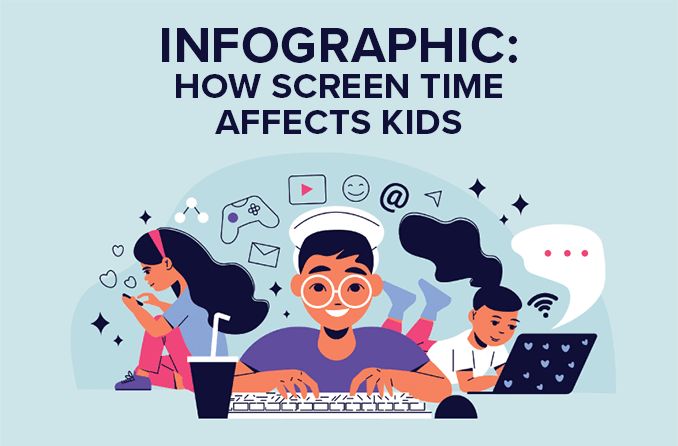
The Impact of Electronic Devices on Children: What Parents Should Know
Share
In today's digital age, electronic devices like tablets and smartphones have become integral to children's lives. While these tools offer educational and entertainment benefits, excessive use can lead to various developmental and health concerns. Understanding these impacts is crucial for parents aiming to foster balanced digital habits in their children.
🧠 Cognitive and Language Development
Excessive screen time has been linked to delays in language acquisition and cognitive development. Children who spend more than two hours daily on screens are more likely to experience speech delays and reduced vocabulary. This is attributed to decreased face-to-face interactions, which are vital for developing communication skills. A study published in the Journal of Psychiatric Research found that preschool-aged children with over two hours of screen time daily had a higher likelihood of speech disorders and learning disabilities.
😴 Sleep Disruption
Screen exposure, especially before bedtime, can interfere with children's sleep patterns. The blue light emitted by screens suppresses melatonin production, making it harder for children to fall asleep. Chronic sleep deprivation can affect mood, attention, and overall health. Research indicates that children with high screen time often experience reduced sleep quality and duration.
🏃 Physical Health Concerns
Increased screen time often correlates with sedentary behavior, contributing to obesity and related health issues in children. A study highlighted that children engaging in more than two hours of screen time daily had a higher risk of obesity due to decreased physical activity and increased calorie intake during screen use.
🧩 Behavioral and Emotional Effects
Children exposed to excessive screen time may exhibit behavioral issues such as irritability, mood swings, and attention problems. A study involving 2,000 parents revealed that high screen usage in children aged 5 to 12 was associated with increased behavioral challenges, including tantrums and reduced attention spans.
👀 Visual Strain and Posture Problems
Prolonged use of electronic devices can lead to eye strain, blurred vision, and discomfort, commonly referred to as "digital eye strain." Additionally, poor posture during device use can cause musculoskeletal issues. Experts recommend regular breaks and proper ergonomics to mitigate these risks.
🧠 Neurological Implications
Emerging research suggests that excessive screen time may affect brain development in young children. MRI studies have shown that children with higher screen exposure have less white matter integrity, which is crucial for language, literacy, and cognitive skills.
👨👩👧 Parental Guidance and Recommendations
To ensure healthy digital habits:
-
Set Time Limits: Follow guidelines recommending no more than one hour of screen time per day for children aged 2 to 5.
-
Encourage Active Play: Promote physical activities to balance sedentary screen time.
-
Monitor Content: Ensure that the content is age-appropriate and educational.
-
Model Behavior: Demonstrate balanced screen use as children often emulate parental habits.
-
Create Tech-Free Zones: Establish areas in the home, like dining spaces, where device use is discouraged.
